
Oak bush-cricket
The Oak bush-cricket is arboreal and can be found in mature trees in woods, hedges, parks and gardens in summer. Males don't have a 'song' as such, but drum on leaves with their hind legs to attract females.

The Oak bush-cricket is arboreal and can be found in mature trees in woods, hedges, parks and gardens in summer. Males don't have a 'song' as such, but drum on leaves with their hind legs to attract females.
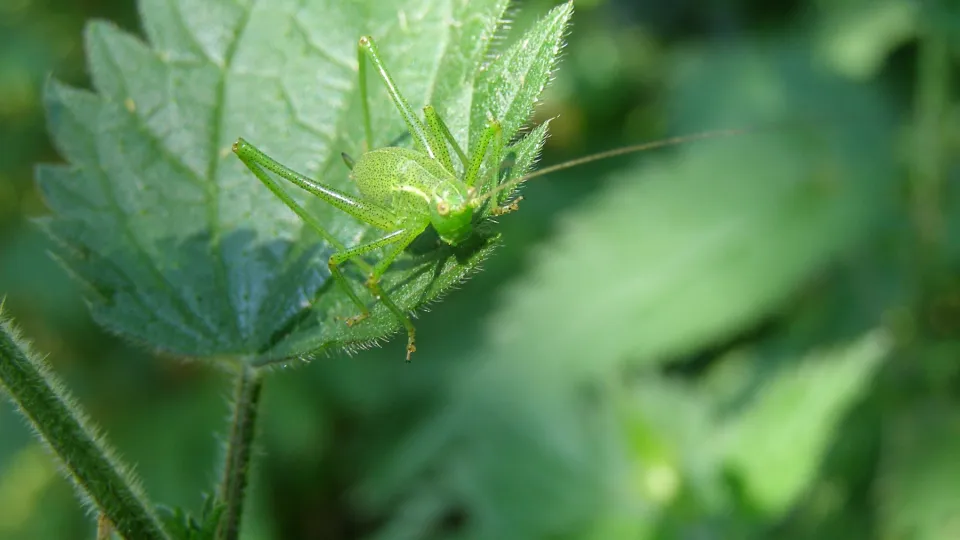
The Speckled bush-cricket, as its name suggests, is covered in tiny, black speckles. It can be found in scrub, hedgerows and gardens throughout summer. Males rub their wings together to create a 'song' for the females.

The Mottled grasshopper can be found in dry grasslands, such as railway cuttings, and heathlands throughout summer. Males can be seen rubbing their legs against their wings to create a 'song' for the females.
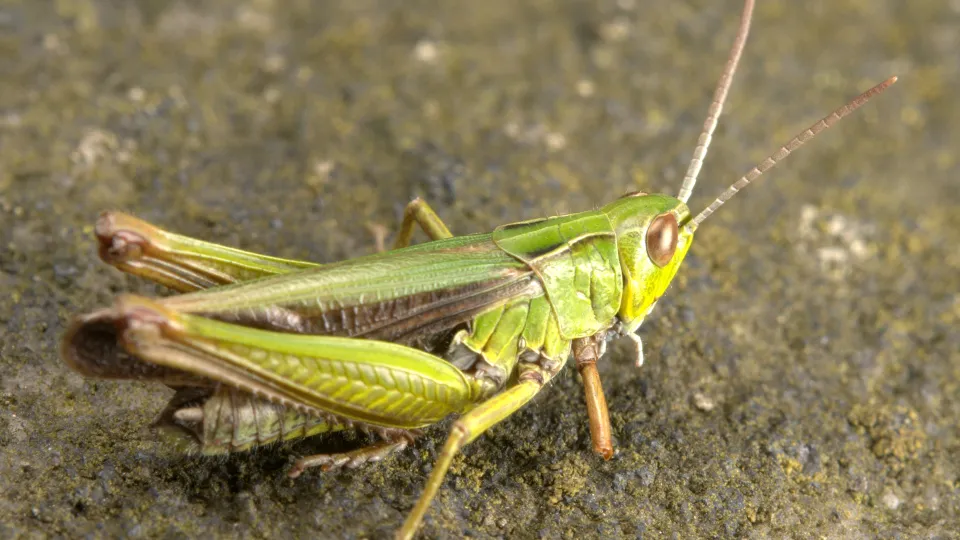
The Common green grasshopper can be found in damp meadows and woodland rides throughout summer. Males can be seen rubbing their legs against their wings to create a 'song' for the females.
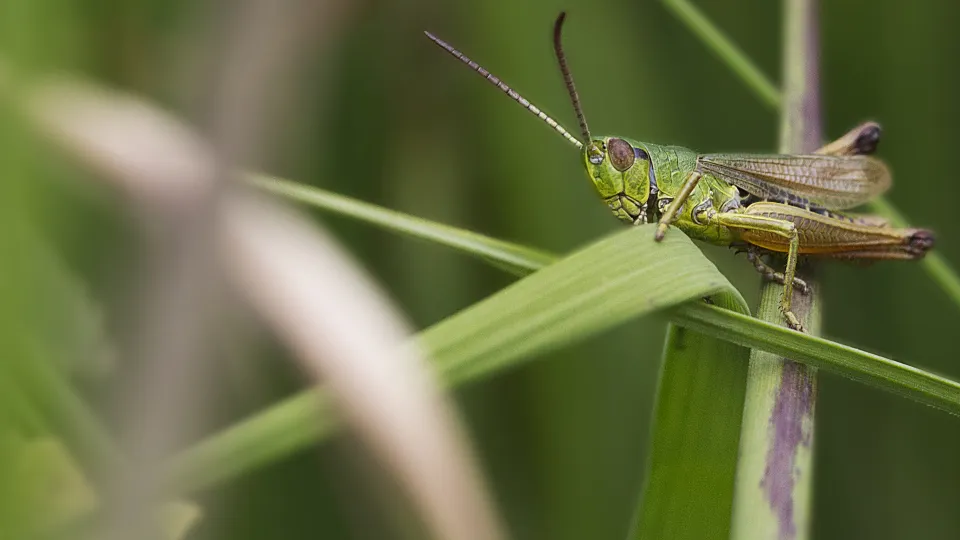
The meadow grasshopper can be found in damp, unimproved pastures and meadows throughout summer. Males can be seen rubbing their legs against their wings to create a 'song' for the females.

The Common field grasshopper can be found in sunny, grassy areas, particularly gardens, throughout summer. Males can be seen rubbing their legs against their wings to create a 'song' for the females.
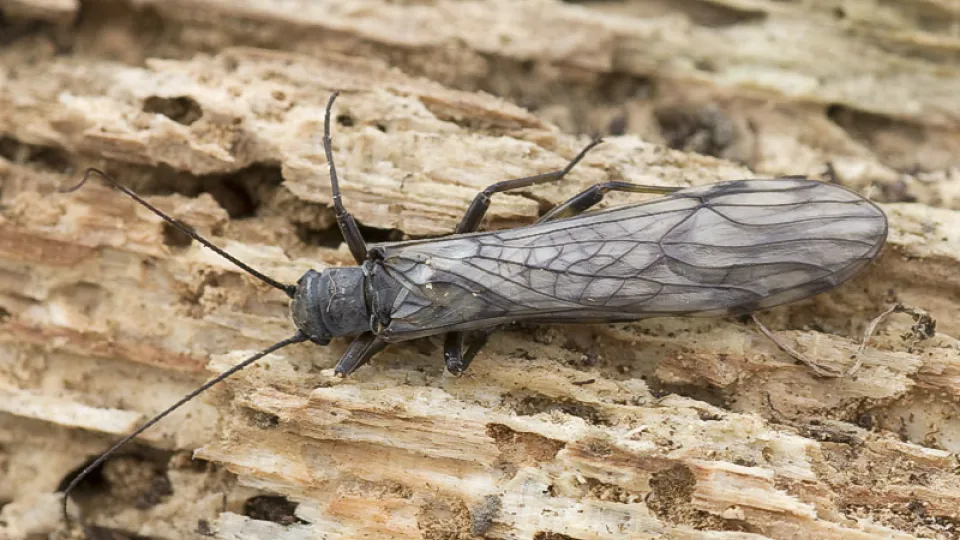
As the name suggests, the Common medium stonefly is found in gravelly upland rivers and streams, often on bankside stones and plants. There are 34 species of Stonefly in the UK, which are hard to tell apart.
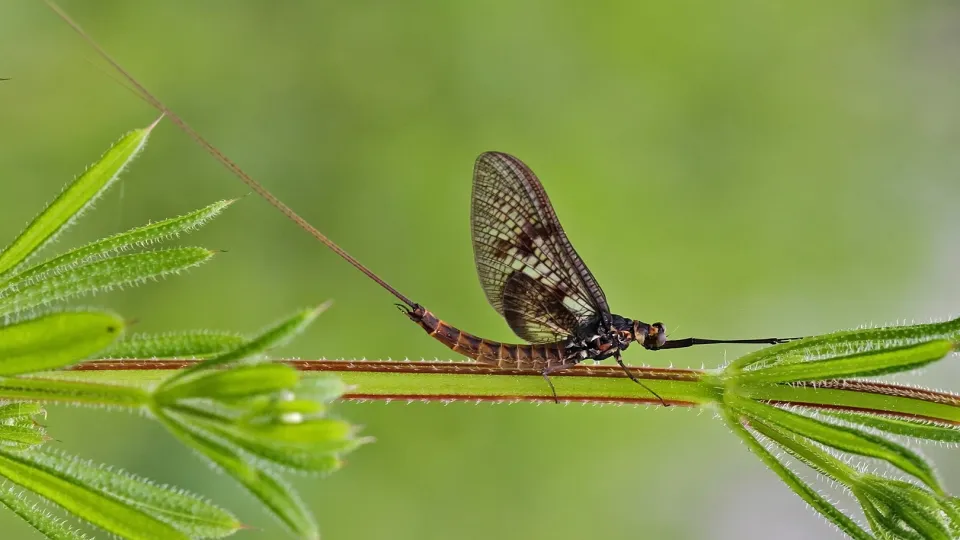
Also known as the 'green drake mayfly', the common mayfly can be found around unpolluted wetlands, such as lakes and rivers. It has transparent, lacy wings and three long 'tails'.
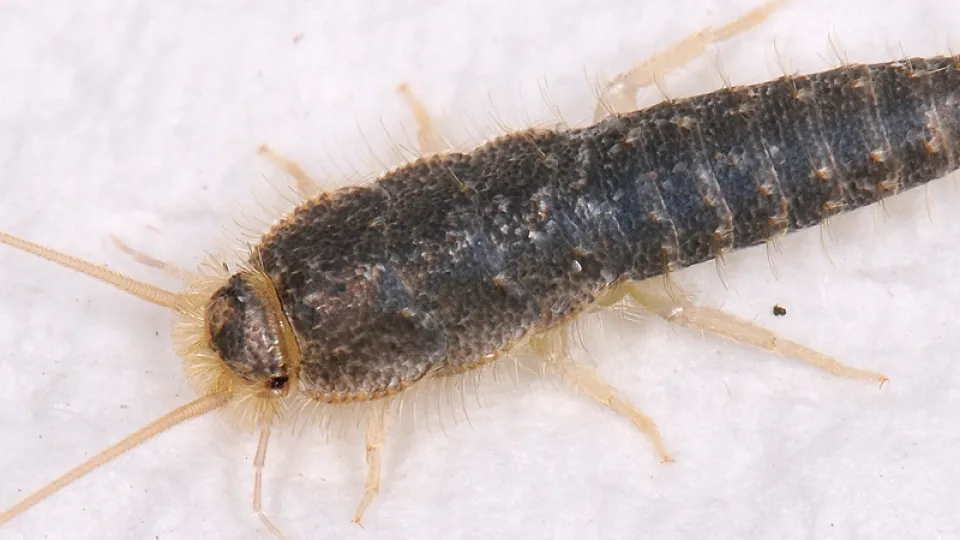
The silverfish is so-named for its fish-like way of moving and its silvery scales. It can be found in the damp corners of the house, such as the kitchen or bathroom. Infestations can cause serious damage.
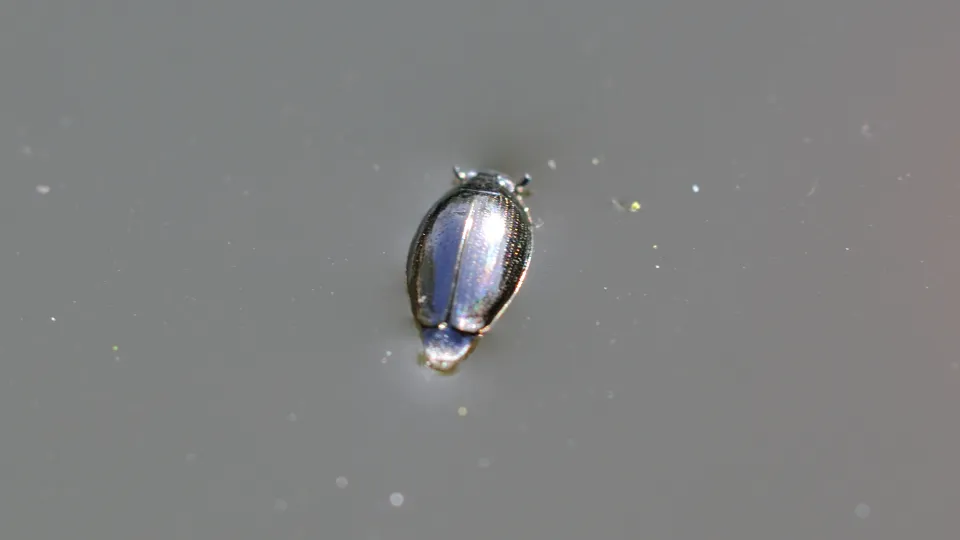
Ever wondered what that little black dot whirling in circles on the top of the water of a pond is? Those are whirligig beetles! Often seen shooting across the water surface on the hunt for its next meal.